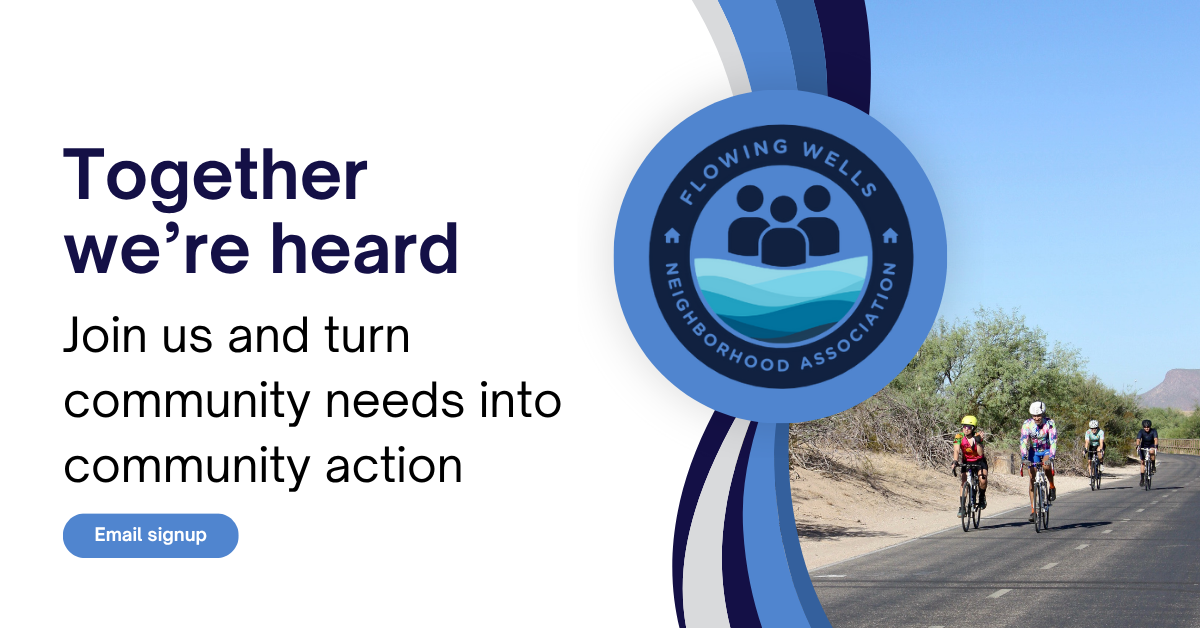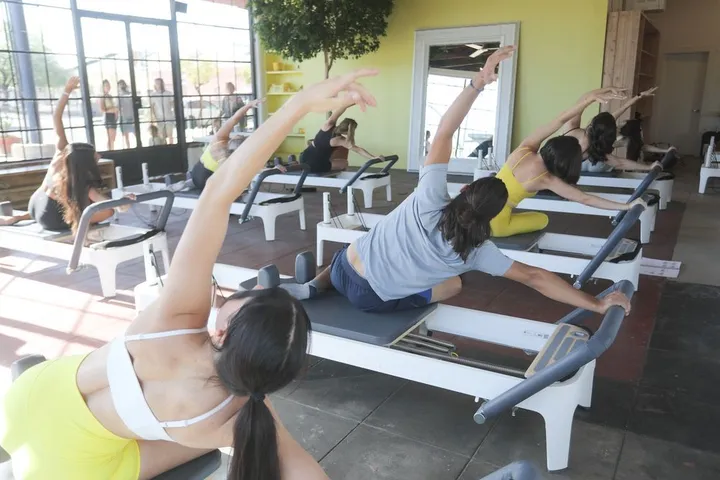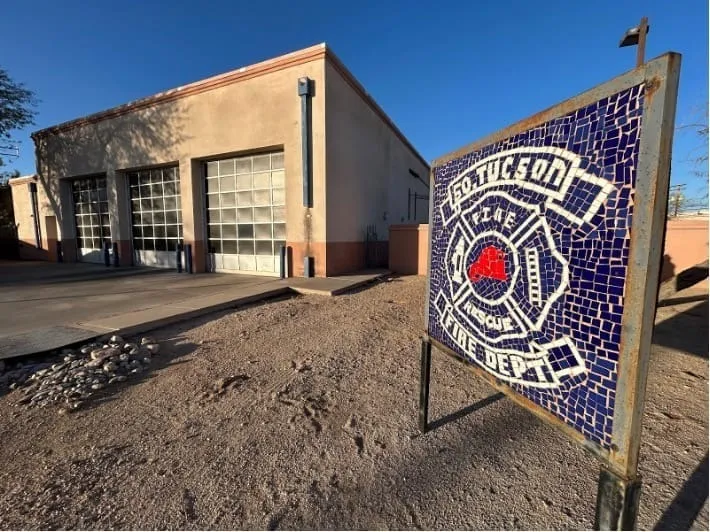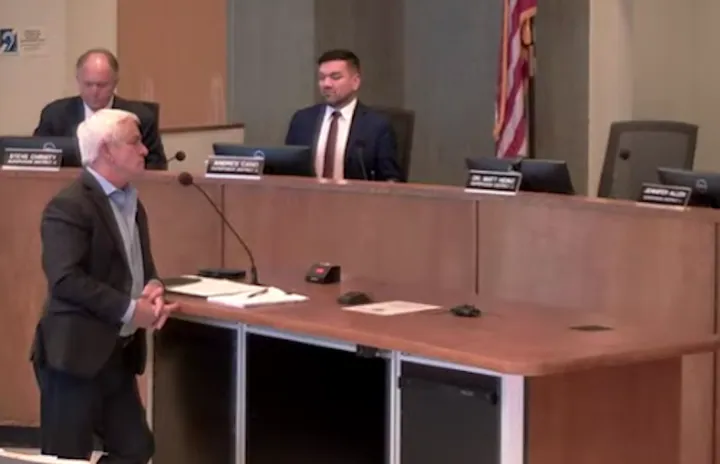New Tucson center supports entrepreneurs, sparks debate
The Tucson Small Business Center opened Oct. 9 to provide resources and support for local entrepreneurs, though some critics say the city should focus on larger issues like crime, homelessness, and infrastructure.

The Tucson Small Business Center opened its doors last week as a new hub for local entrepreneurs, but some critics argue the city should prioritize addressing larger issues like crime, homelessness, and infrastructure before investing in economic development.
The center is a collaborative space for entrepreneurs to gather, learn, and connect with peers and experts. It’s a partnership between the City of Tucson's Department of Economic Initiatives and two nonprofits: Groundswell Capital and the Tucson Industrial Development Authority.
“For years, I held a quiet hope, to create a building where Tucson's entrepreneurs can feel seen, supported and celebrated in a home for connection, creativity and real guidance — a place that says, ‘Tucson cares about these businesses,” Tucson Industrial Development Authority and Groundswell Capital CEO Dre Thompson said during a Thursday celebration.
The center, at 600 S. Meyer Ave., sits on the former site of Jerry's Lee Ho Market, Tucson’s oldest Chinese market, on what was once the city’s Chinatown, a commercial district dating back to 1880.
“It's pretty cool that now the city has a center where all the small businesses can fit together and see what every other business has to offer for the city and everything,” said Colombian-born interior designer Rommy Santiago.
Santiago is the founder of My Upcycle Home, a small business that focuses on intentional interior design using upcycled materials and sustainable remodeling practices.
“When you start a business, it's really hard to make those connections and find your tribe,” she said. “I think this is huge for the community.”
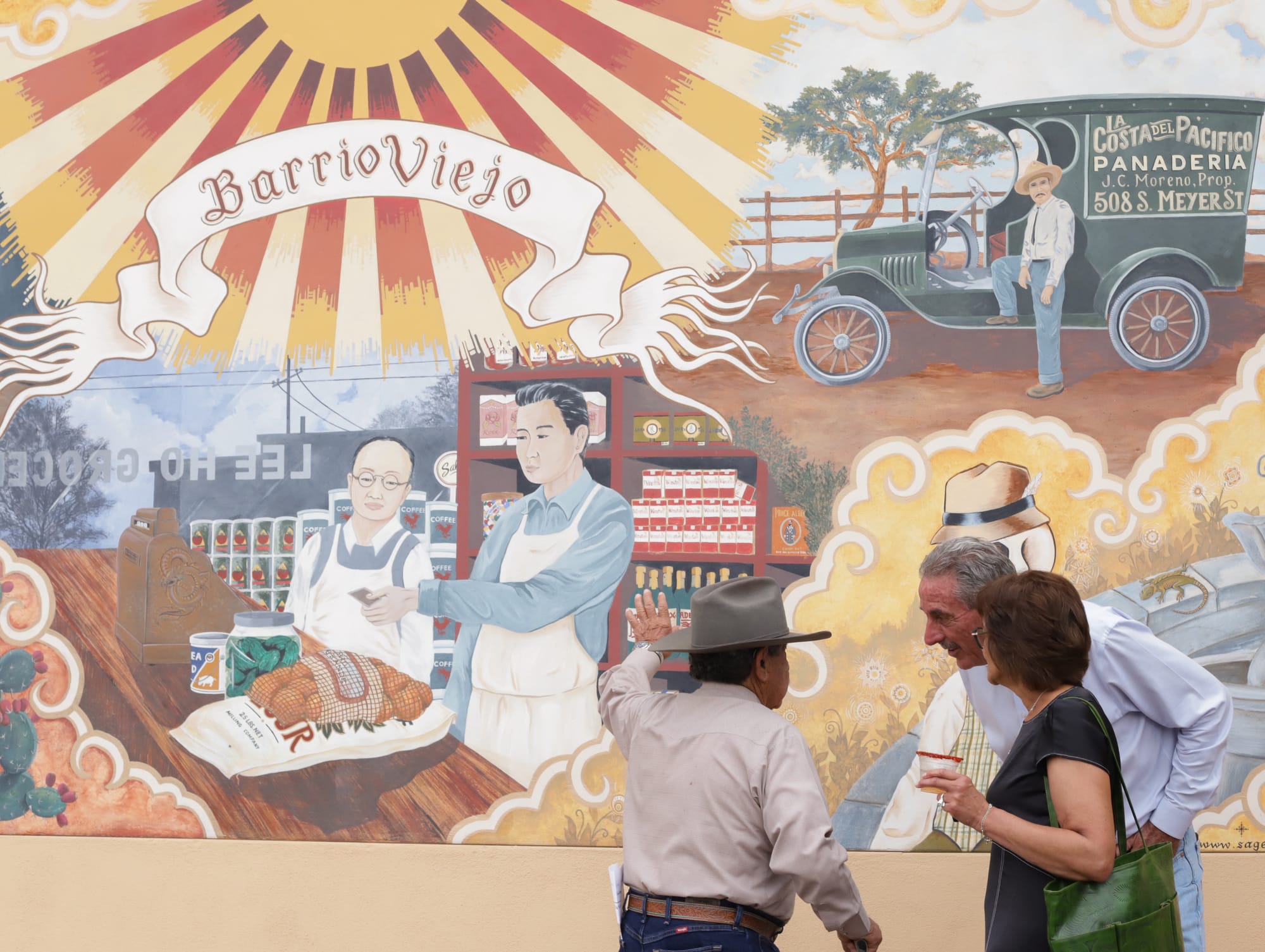
While there is plenty of optimism about how this center can help boost the city’s economy, it has also faced criticism.
Republican Ward 3 city council candidate Janet "JL" Wittenbraker, who is challenging Democrat Kevin Dahl for the seat, took to Facebook to express her disagreement with the center.
“Large businesses play a vital role in increasing median incomes and supporting small businesses. Tucson’s City Manager and his economic development cohorts should prioritize attracting high-paying industries,” Wittenbraker said in a comment on Mayor Regina Romero’s Facebook post about the center.
Thompson offered a different perspective, saying small businesses are the bedrock of the city.
“One of the largest drivers of our local economy is actually the tax creation that's generated by small businesses,” Thompson said during Thursday’s events.
Wittenbraker argued that the city is hampering progress in attracting high-paying jobs and supporting new businesses.
“This effort is challenged by policy decisions and frequent fee increases from the Mayor and Council. Additionally, addressing concerns like crime, homelessness, and infrastructure maintenance could further strengthen the city’s appeal. Improvements in these areas would better support economic development goals,” she said.

Wittenbraker challenged Romero for her seat in 2023, earning 32% of the vote.
Romero said during the event that the city is constantly investing in its people, highlighting the Community Service Officer program, Housing First, and Violence Intervention and Vitalization Action as programs that address crime and homelessness concerns.
“We've done a lot of work and are going to continue to create additional programs and initiatives to create a safe city in our community,” she said. “We do need our partners to step up and help.”
She called on Pima County and the state of Arizona to be part of the solution.
“The city of Tucson has never and is not responsible for investing in behavioral health, substance use, and serious mental illness,” she said. “Those are responsibilities of the state of Arizona and Pima County. And so we're bringing them to the table so that they can respond and invest with us.”
On Saturday, Romero announced the creation of the Safe City Initiative to address public safety concerns, with a focus on both enforcement and support services. She emphasized the need for real solutions that prevent crime and improve quality of life, highlighting programs like low-barrier shelters, violence interruption, and community health services.
Acknowledging gaps in services for individuals with serious mental illnesses and substance use disorders, the initiative aims to connect people with treatment alternatives and long-term support programs, while advocating for increased state and county involvement in addressing this public health crisis.

By supporting local entrepreneurship alongside public health initiatives, the city aims to strengthen both economic growth and community well-being.
Money spent at a local business circulates back into the local economy, meaning that entrepreneurship contributes to job growth, real economic activity, innovation, and economic dynamism, according to the City of Tucson’s 2024 Prosperity Initiative Final Report.
“We're going to see stronger revenues for the City of Tucson so that we can reinvest back into the community,” Thompson said during Thursday’s event. “We have to think about the fundamentals and our economic prosperity. The reason that we see crime is because people don't have jobs. They don't have hope. They don't feel like they have an opportunity.”
Thompson said the center will help address quality of life, safety, and security concerns because it aids in the creation of jobs that generate revenue for the city and create a safer community where people will want to stay, grow, and raise their families.
“Every job that we have creates more opportunities to reinvest in the things that are so important, such as safety, our roads and schools,” Thompson said. “All these types of things really start from the foundation.”
The center offers a wide range of free services, including classes on topics related to launching a business, navigating municipal processes, and managing cash flow. It provides guidance on access to capital, one-on-one support with understanding city processes, permits, licenses, and more. It also has open office hours and the option to book a private room for events or workshops.
“Having a space where businesses can go in and ask for help and talk to an actual person and tell them what it is that they're struggling with, or if they have ideas of what they want to do or just get some help,” said María-José Cortés, owner of Di Luna Candles, a small business that sells handcrafted and eco-friendly candles inspired by her family’s Mexican heritage.
Diana Ramos is a University of Arizona alum and Tucson Spotlight reporter. Contact her at diana@tucsonspotlight.org.
Tucson Spotlight is a community-based newsroom that provides paid opportunities for students and rising journalists in Southern Arizona. Please consider supporting our work with a tax-deductible donation.
